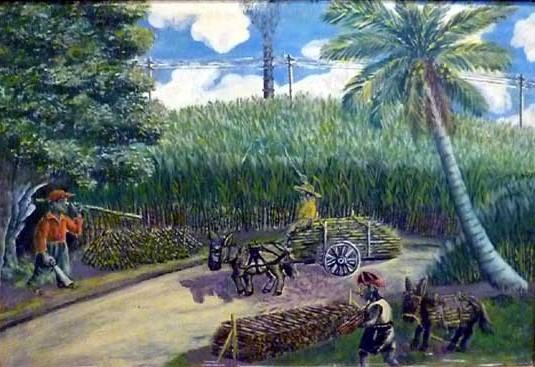Africa Roundup

28 May to 3 June 2023
Ghana
Domelevo’s leave unconstitutional — Supreme Court
The Supreme Court has declared that President Nana Addo Dankwa Akufo-Addo breached the 1992 Constitution when he directed a former auditor-general, Daniel Yaw Domelevo, to proceed on leave in 2020. In a unanimous decision, a seven-member panel of the supreme court also held that it was unconstitutional for the President to have appointed an acting auditor-general when Domelevo was still in office. “We declare the directive by the President appointing an acting Auditor-General when the substantive Auditor-General had not retired or been removed from office purportedly in accordance with Article 146 of the 1992 Constitution as unconstitutional, null and void,” the court declared.
It was the considered view of the court that the directive by the President for Domelevo to proceed on leave which was contained in a letter dated 29 June 2020 and signed by the executive secretary to the president, Nana Bediatuo Asante, violated Articles 70 (1), 187 (7) (a), (12) (13) and 146 of the 1992 Constitution and was, therefore, null and void. Article 70 (1) of the Constitution deals with the power of the president to appoint certain public officers, including the auditor-general. Article 187 (7) (a) stipulates that the auditor-general shall not be subject to any control or direction when performing his functions.
Nigeria
Tinubu Inaugurated as president
Bola Tinubu was sworn in as Nigeria’s president, at a ceremony in the capital Abuja. The 71-year-old comes to power following a disputed election and under pressure to quickly improve the economy and security in Africa’s most populous country. Tinubu took his oath of office inheriting a country with profound challenges. Unemployment has soared, and financial insecurity has spread across Africa’s largest economy under outgoing President Muhammadu Buhari.
Ghana’s President Nana Akufo-Addo joined prominent dignitaries at the inauguration of President-elect Bola Tinubu which was held at the at the Eagle Square in Abuja, the nation’s capital. Among them were the president of the Ooni of Ife, Oba Adeyeye Enitan Ogunwusi; African Development Bank president, Dr Akinwumi Adesina; Central Bank of Nigeria (CBN) governor, Godwin Emefiele; Anambra State governor, Professor Charles Soludo. Other special guests included Africa’s richest man, Aliko Dangote as well as business moguls Jim Ovia, Abdulsamad Rabiu and Femi Otedola.
South Africa
Opposition sues South African Government
South Africa’s leading opposition party said on Tuesday that it had taken legal action to force the government to arrest Russian President Vladimir Putin if he attends the BRICS (Brazil, Russia, India, China and South Africa bloc) summit in Cape Town in August. In March, the International Criminal Court (ICC) issued an arrest warrant for Putin in anticipation of this visit. They accused Russia of having unlawfully deported Ukrainian children.
The Democratic Alliance (DA) party said it had sought a court application to ensure the government detains the Russian leader and hands him over to the ICC “should President Putin set foot in South Africa. This pre-emptory court action aims to ensure that South Africa upholds its obligations”, DA shadow justice minister, Glynnis Breytenbach, stated. An ICC member, South Africa, which has close diplomatic ties with Moscow, is now in a diplomatic dilemma. “We will explore various options with regard to how the Rome Statute was domesticated in our country including the option to look at extending customary diplomatic immunity to visiting heads of state in our country”, Justice Minister Ronald Lamola said in May.
Liberia
Warlord convicted in Switzerland
A Swiss court has upheld the 20 year sentence being served by former Liberian warlord, Alieu Kosiah. Kosiah was found guilty on multiple crimes committed during Liberia’s back-to-back wars between 1989 and 2003. Judges in Switzerland’s first-ever war crimes trial found him “guilty of violating the laws of war” alongside charges of rape, murder and cannibalism. It was the first time in the world that a Liberian had been convicted of war crimes committed during the conflict. Kosiah settled in Switzerland in 1998 and was arrested in 2014. He appealed that verdict, pleading his innocence and demanding an acquittal. However, the appeals chamber backed the earlier court decision and agreed that after serving his sentence, the Kosiah should be deported and barred from re-entering Switzerland for 10 years. Notably, it agreed with the prosecutor and plaintiffs’ charge that his actions deserved the more serious tag of crimes against humanity.
Liberia’s civil wars are infamous for their brutality and the use of child soldiers. They left an estimated 250,000 people dead in the country between 1989 and 2003.The First Liberian Civil War started in 1989 when politician and warlord, Charles Taylor, started an uprising to topple President Samuel Doe’s military regime. Doe was mutilated and then murdered in an execution that his killers filmed. Kosiah’s involvement in the conflict primarily occurred during the first war, fighting on Taylor’s side. Taylor was elected as Liberia’s leader in 1997 after a peace deal, but a second conflict erupted two years later. The second conflict from 1999 to 2003 ended with Taylor escaping to Nigeria. Taylor was convicted of war crimes and crimes against humanity by an international UN-backed court in the Dutch capital, The Hague, in 2012. However, that was over atrocities committed in neighboring Sierra Leone, which also became embroiled in the conflict, and not in his own country. Source: DW
Sierra Leone
Symbolic ‘Cotton Tree’ destroyed in rainstorm
An old cotton tree that has served as a historic symbol in Sierra Leone was felled during a wind and rain storm in the capital Freetown. A release by the government stated that the 70-metre (230-foot) Ceiba pentandra known by Sierra Leoneans as “cotton tree” lost all of its branches late Wednesday to torrential rains and high winds. However, the base of its enormous trunk is still standing. The tree is estimated to be around 400 years old. “All Sierra Leoneans will pause for thought at the loss of such a prestigious national symbol as the Cotton Tree. For centuries it has been a proud emblem of our nation, a symbol of a nation that has grown to provide shelter for many”, President Julius Maada Bio said.
According to legend, slaves who won their freedom fighting for the British in the American War of Independence prayed under the tree when they were relocated to West Africa. The tree has adorned bank notes and stamps, was visited by Queen Elizabeth II in 1961, and has remained a landmark ever since. Freetown residents continued to pray beneath the tree, which in recent decades towered over a busy roundabout near the national museum, the central post office and the country’s highest court.
Sierra Leone has suffered several climate-related disasters in recent years. In 2017, more than 1,100 people were killed in a mudslide in the capital when part of a mountain collapsed onto informal settlements. Another eight people were killed in a landslide last August.
Kenya
Cult pastor denies asking members to starve
The leader of a Christian cult, who has been accused of encouraging his followers to starve themselves, appeared in court in Mombasa, Kenya. According to Paul Mackenzie, the court hearing is a “matter of intimidation” and time wasting. Mackenzie was arrested last month after police received a tipoff that his land on the Shakahola forest in the Kilifi County of eastern Kenya was the site of mass graves. According to court documents, investigators have, so far, found 249 bodies and at least 10 mass graves in the Shakahola forest area. Mackenzie, who appeared before the magistrate’s court in Mombasa, denied ever having “seen anybody starving” when asked about accusations that followers of his group had starved their children following his instructions.
The state prosecutor said they would seek to extend the respondents’ custody period by a further 60 days. The prosecutor has maintained that the “extended period of 60 days is the least period possible within which investigations are to be completed under the prevailing circumstances”. The prosecutor is also arguing that there are “compelling reasons” to deny the respondents bail, including evidence gathered thus far which “demonstrates a high likelihood of serious charges against the accused”.
Togo
Goverment inks agreement with Morocco
Togo teamed up with Morocco’s Phosphate Office (OCP) to carry out its agricultural development project, via mechanization and local fertilizer production. The two parties signed two agreements in this framework on 31 May, on the sidelines of a top-class meeting on fertilizer security that Lomé recently hosted. The agreements, respectively, aim to bolster agricultural mechanization in Togo and improve fertilizer supply by setting up a phosphate fertilizer plant in the country. The agreements will strengthen cooperation with Togo in the agricultural and mining sectors to promote the production of phosphate fertilizers from carbonated phosphate and to improve the competitiveness of agricultural value chains.
The agreements also aim to improve the competitiveness of Togo’s agricultural value chains, according to OCP Africa which signed its first agreement with the Togolese Ministry of Agriculture from which over 600,000 farmer will benefit. The partners agreed to set up an agricultural service centre which offers mechanization services, irrigation, maintenance, supply of agricultural inputs as well as training and technical support. “This MoU will also make it possible to update the fertility map of the country in order to cover all the cultivable land, while developing fertilizer formulas adapted to the needs of the soils and local crops”, stated OCP Africa. The Togolese ministers of agriculture and mining, Antoine Lekpa and Mila Aziablé, and the head of the OCP for Africa, Mohamed Anouad Jamali, signed the documents.
Ivory Coast
IMF approves US$3.5bn aid package
The International Monetary Fund (IMF) has approved an aid package for Ivory Coast totaling $3.5 billion. The first tranche is nearly $500 million. The programme, which has been endorsed by the IMF’s Executive Board, is spread over 40 months and will help the West African country to implement “the national development plan put in place by the authorities while preserving its macroeconomic stability. The series of global shocks has weighed on Ivorian public finances and regional reserves”, commented, Kenji Okamura, deputy managing director of the IMF. The government has established a consolidation programme to manage the financing provided by the Fund.
Although the Ivorian economy has generally resisted the pandemic, it has suffered, like most African countries, the repercussions of the invasion of Ukraine by Russia and the tightening of monetary policies of advanced countries. The measures taken to “reduce pressure on prices, the increase in security spending and the trade imbalance, due to robust domestic demand have reinforced macroeconomic imbalances”, the IMF stated. The IMF said it “fully supports the authorities’ reform programme and welcomes their strong commitment to fiscal and debt sustainability and to the development of a more prosperous and inclusive society.”
Burkina Faso
40 die in suspected Jihadist attack
About 40 people, including army auxiliaries, have been killed western Burkina Faso, during two attacks by suspected Jihadists. According to a press release from the municipality of the Boucle du Mouhoun region, near Mali, “a secure convoy” was “the target of an attack by armed men” near Bourasso, “This attack caused the death of about twenty people, mainly VDP (Volunteers for the defence of the homeland, civilian auxiliaries of the army)”. The municipality of Boucle du Mouhoun, advised that 18 combatants were wounded.
Presumed Jihadists attacked the populations of Ouakara, still in the Boucle du Mouhoun region, creating innocent victims among the inhabitants. “We recorded about twenty killings by the attackers who burst into the village of Ouakara”, located about 100 km from Bourasso, a resident told AFP, and adding “The balance sheet is provisional. … Several people have left the village to go to Nouna or Dédougou, because the terrorists gave a 72-hour ultimatum to empty the village”, indicated a resident. In recent weeks, violent attacks have multiplied in the region of Boucle du Mouhoun, bordering Mali.
Senegal
Sonko sentenced to two years in prison for “corrupting young people
A criminal court in Dakar sentenced Senegalese opposition politician, Ousmane Sonko, who is a candidate in the 2024 presidential election, to two years’ imprisonment on a charge of “corrupting young people”, while acquitting him of rape. The criminal division also sentenced Sonko’s co-accused, Ndèye Khady Ndiaye, the owner of the beauty salon where Sonko was accused of repeatedly abusing a female employee, to two years’ imprisonment.
The “corruption of youth”, which consists of poaching or encouraging the debauchery of a young person under the age of 21, is an offence under Senegalese law, and not a crime like rape. Sonko would have been stripped of his electoral rights if he had been convicted in absentia of a crime such as rape. However, the reclassification of the offence as a misdemeanour under the electoral code appears to maintain the threat of ineligibility for Sonko and his ability to stand in the 2024 presidential election.
Cameroon
Traditional ruler freed after 18 months
Government officials say a prominent traditional leader in Cameroon’s troubled northwest region has been freed after 18 months of being held captive by separatists. Government officials say Cameroon’s military rescued Fon Kevin Shumitang in battles with separatist fighters, but the fighters insist that they set the traditional ruler free. Cameroon government officials say the military freed Shumitang from a separatist camp in Bui, in the northwest region. They added that several fighters were killed in the encounter but gave no further details. Deben Tchoffo, the governor of the region, said the traditional leader’s release shows that authorities are gradually restoring order after years of separatist unrest.
“I would like to congratulate military men that carried out the operation. They have been able to take back the Fon of Bambalang. Indeed, it is coming to confirm that things are coming back bit by bit normally in almost all the major parts on the Northwest region”, said Tchoffo. He added that Shumitang would be presented to civilians at his palace after undergoing a medical examination. Images shared on social media and broadcast over local TV stations showed an unkempt Shumitang but not looking thin or unhealthy. Separatist fighters kidnapped Shumitang from his palace in the town of Bambalang on 7 December 2021, according to the military. The military says it took a long time to free Shumitang because the government wanted him alive.
Rwanda
Genocide suspect reappears in court
Fulgence Kayishema appeared, for the second time, before a court in Cape Town, South Africa, on Friday (2 June). The former police officer is one of the most wanted suspects in Rwanda’s genocide and is suspected of orchestrating the killing of some 2,000 people nearly three decades ago. Following Kayishema’s appearance, the court was adjourned until 9 June. Citing Eric Ntabazalila, the spokesperson of the National Prosecuting Authority (NPA), local media Mail & Guardian and The Citizen reported that Kayishema was charged with at least 14 charges and indicated that more charges would be added. The state will, reportedly, review files during the hiatus to unveil a more comprehensive charge sheet.
“What we are talking about at the moment, is local charges. Then it will also depend on the two lever arch files which have more charges against Fulgence Kayishema… [and] what comes out of those”, state prosecutor, Nathan Adriaanse, said. Fulgence Kayishema, known as Donatien Nibashumba, a false name, applied for asylum in South Africa in January 2000. He represented himself as citizen of Burundi. Kayishema was arrested on 24 May at a grape farm in the small wine lands town of Paarl, 60 kilometers (35 miles) north of Cape Town. It is alleged that he took part in one of the genocide’s bloodiest episodes, when more than 2,000 men, women and children, who had sought shelter in a church, were slaughtered.






